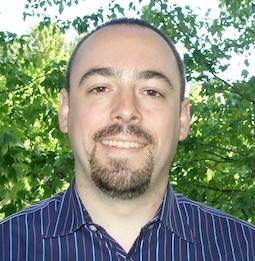
What is your current occupation?
I am currently a partner in Spectrum Psychological Associates, a group practice in Lynnwood, Washington. My clinical practice consists primarily of individuals who have a history of complex trauma. I also do forensic evaluations and teach seminars on Dialectical Behavior Therapy, suicide assessment, and trauma. In addition, I’m currently the practice representative for APA’s Committee on Early Career Psychologist (CECP), as well as the website and associate newsletter editor for Division 56.
Where were you educated?
I received my BS in psychology from the University of Washington, and my MA and PsyD in clinical psychology at Argosy University, Seattle. My internship was at the Fremont Community Therapy Project (FCTP) in Seattle, Washington, which was run by Laura Brown. We specialized in treatment posttraumatic reactions, including dissociation and other complex presentations. After graduating, I continued my postdoctoral training at FCTP, focusing primarily on increasing my knowledge of trauma treatment and forensic psychological assessment. I also served as the Dialectical Behavior Therapy (DBT) skills group supervisor for two years.
Why did you choose this field?
I entered my undergraduate program to be an orthodontist. During my second year I had a sudden realization that I did not want to dig around in people’s mouths for the rest of my life and had a short crisis moment as I realized I had no idea what I actually wanted to when I grew up. I happened to be in a sociology class at this moment, and approximately 24 hours later during the same course we talked about psychology. Something clicked, my body felt settled in a way that is hard to describe, and the decision was made. Although I used to say that psychology chose me, it was only later that I realized how much my training and teaching in the martial arts really served as the primer for what would later become my career. My venture into trauma psychology was catalyzed by my teacher, mentor, and dear friend, Laura Brown. Her gentle yet firm guidance helped me to bring an authenticity to my life that is the cornerstone of the connected relationship needed for trauma work. While I entered into the field with the desire to work with trauma survivors, it was training under Laura and with all the amazing folks at the Fremont Community Therapy Project that opened my eyes to the field of trauma psychology.
What is most rewarding about this work for you?
Creating deep, meaningful connections with people who previously believed humans were only capable of causing terror, distress, and suffering. While this relationship is often viewed the fear at first, it is incredibly rewarding to watch people increase their willingness to be present and open within the therapy room. As I think about several of my clients who I have worked with since graduate school, the connection we have fills my heart and spirit during some of the more challenging moments, or the days where I wonder what it would have been like to actually be an orthodontist.
What is most frustrating about your work?
I have worked with an unfortunate number of people who have had therapists who crossed ethical lines and caused even more difficulties in the lives of their clients. Instead of the help they hoped to receive, these clients experienced betrayal of their confidence and trust in the very place they were told would provide healing and safety. In reality, this goes beyond a frustration, as it is inconceivable to me that anyone in a helping profession would abuse their power and privilege.
How do you keep your life in balance (i.e., what are your hobbies)?
There is no way I could be where I am and doing all that I am doing without the support of my wife and the joy that our son brings. Spending time as a family, regardless of the activity, is one of the most critical aspects of my self-care. In addition, I have a number of close friends and colleagues who help prop me up during the more difficult times. I feel blessed to have such wonderful humans in my life, particularly after difficult days at the office.
I have also been training in the martial arts for almost 19 years, which has always provided me a sense of grounding and well-being. In addition to my own training, I have been an instructor for 16 years, which although was unknown to me in the beginning, was my first exposure to being a helping professional and eventually led to my dissertation. Although I do not spend nearly enough time behind the camera, I also enjoy taking pictures and have several of my prints hung in my office.
What are your future plans?
Continue to grow as a human being in every way possible, with a particular focus on increasing my skills as a parent and partner. Professionally, I hope to write, teach, and supervise on a more frequent basis. Finally, I would like to get more time in behind the camera, as it is one of the easiest places for me to remain focused on the beauty of the present moment.



